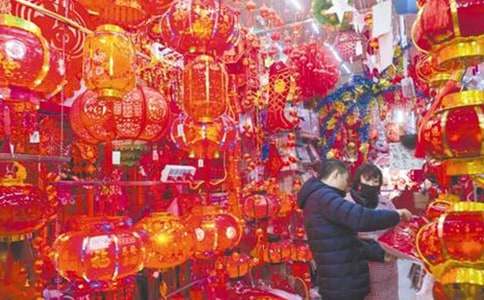關(guān)于傳統(tǒng)節(jié)日的英語(yǔ)作文范文
導(dǎo)語(yǔ):傳統(tǒng)節(jié)日形成,是一個(gè)民族或國(guó)家歷史文化長(zhǎng)期積淀凝聚的過(guò)程。以下是小編帶來(lái)的傳統(tǒng)節(jié)日的英語(yǔ)作文,希望對(duì)你有幫助。

傳統(tǒng)節(jié)日的'英語(yǔ)作文(一)
The August Moon Festival or Mid-Autumn Festival(Chinese characters above)is one of the traditional Chinese holidays.It is held on the 15th day of the 8th lunar month.Chinese legends say that the moon is at its brightest and roundest on this day.Based on the Gregorian calendar,this year's August Moon Festival will be held on September 19.
The August Moon Festival is often called the Women's Festival.The moon(Chinese character on right)symbolizes elegance and beauty.While Westerners worship the sun(yang or male)for its power,people in the Far East admire the moon.The moon is the 'yin' or female principle and it is a trusted friend.Chinese parents often name their daughters after the moon,in hope that they will be as lovely as the moon.
傳統(tǒng)節(jié)日的英語(yǔ)作文(二)
Nowadays,some western holidays like Christmas Eve and Valentine’s Day have become so popular with Chinese people that they have been a part of some people’s life.On the contrary,some traditional Chinese festivals gradually are ignored by more and more people,especially young people.However,to our delight,some social groups have appealed to common people for more attention to our own national culture.
Although a few people once advocated that traditional festivals like the Spring Festival should be discarded because they have become obstacles to social progress.It can not be accepted and supported by the majority of Chinese people in reality.Indeed,the old way of spending festivals produces several disadvantages such as money wasting and transportation overloading.But we cannot disregard its other side: traditional festivals play an active role in our life.Traditional festivals not only bring joy but also bring the family together,which is so priceless in modern society.
What we should do is to preserve the positive things and make them flourish in the modern world.As for the negative aspects of it,we should not hesitate to abandon them and prevent them from affecting and troubling us and the next generation.
傳統(tǒng)節(jié)日的英語(yǔ)作文(三)
My happy Spring Festival After the New Year’s Eve dinner with my family,we began to sit down in front of the TV,and enjoyed 2008 CCTV Spring Festival gala.At about ten o’clock,the black sky was lightened by lots of fireworks with colorful light and happy sound.We stop watching the CCTV 2008 CCTV Spring Festival gala,and began to climb up the balcony to see the beautiful fireworks view,and my father took some fireworks up,and we also began to play fireworks.What a beautiful night.Later,my cell phone was ringing all the time.I received lots of short messages from my friends and classmates.They all blessed me happy New Year.I gave same bless to them by sending back the happy words.At almost 12 pm,I made a wish in New Year,and began to sleep.When I woke up in the first day of New Year,my father and mother gave two red packets to me,and blessed me that everything will go well on me.I thanked them,and accepted the red packets happily.I have been waiting for the day that I can get lots of red
packets.This is my happiest time of the year.After lunch,both my family went to the park,the streets,and the shops or supermarkets.We took many photos in the park,and bought many things in the shops or supermarket.I met my uncles and aunts,they all blessed us happy New Year and gave me red packets.I was too happy to count how many red packets I got.The following days,we visited my grandparents and some of relatives.We happily talk with them,and brought some presents to them,and also received some New Year presents.This was how did I spend my Spring Festival; I really enjoyed myself in Spring Festival.
【傳統(tǒng)節(jié)日的英語(yǔ)作文】相關(guān)文章:
關(guān)于傳統(tǒng)節(jié)日的英語(yǔ)作文06-27
寫(xiě)傳統(tǒng)節(jié)日的英語(yǔ)作文06-27
傳統(tǒng)節(jié)日春節(jié)英語(yǔ)作文10-17
描寫(xiě)傳統(tǒng)節(jié)日英語(yǔ)作文06-24
介紹傳統(tǒng)節(jié)日英語(yǔ)作文06-27
英語(yǔ)作文:傳統(tǒng)節(jié)日遇冷08-13
關(guān)于傳統(tǒng)節(jié)日英語(yǔ)作文12-10